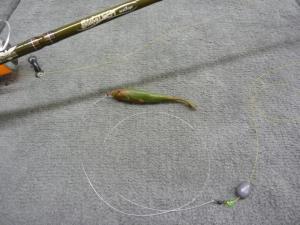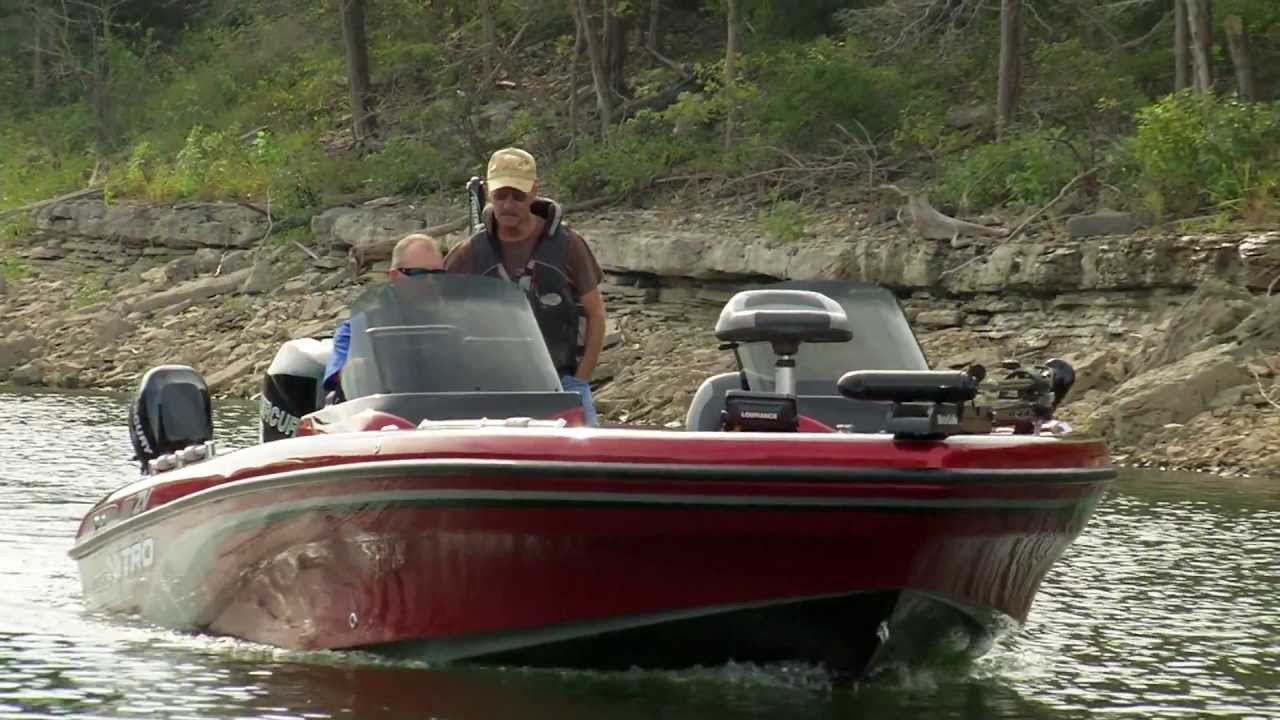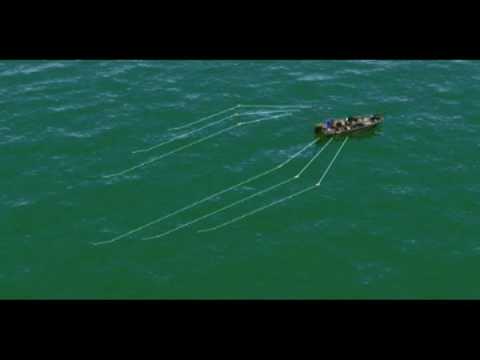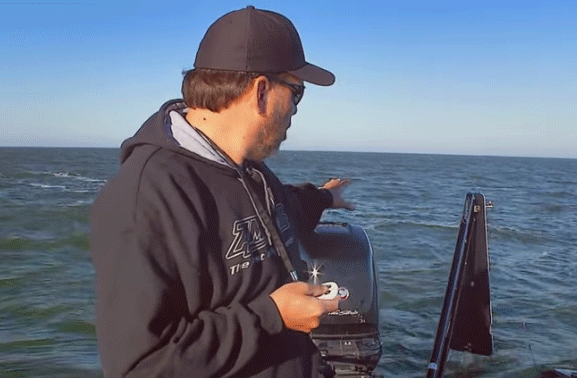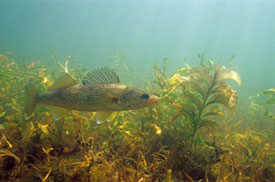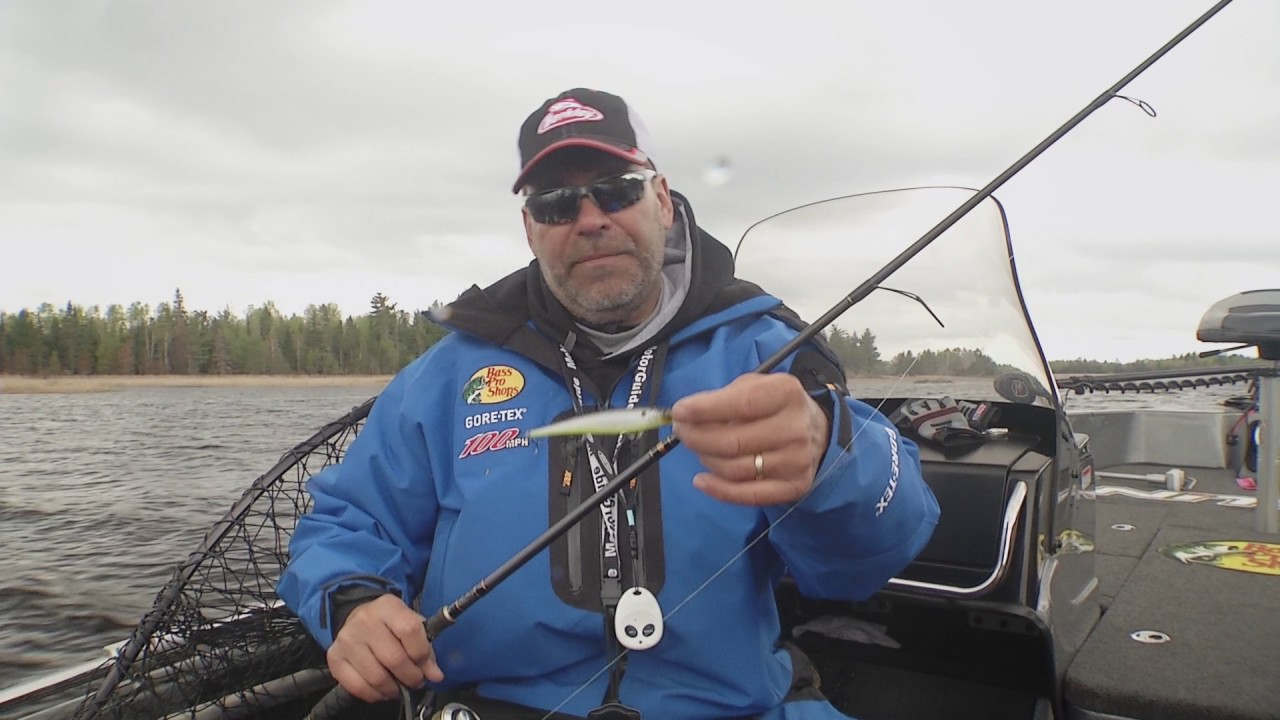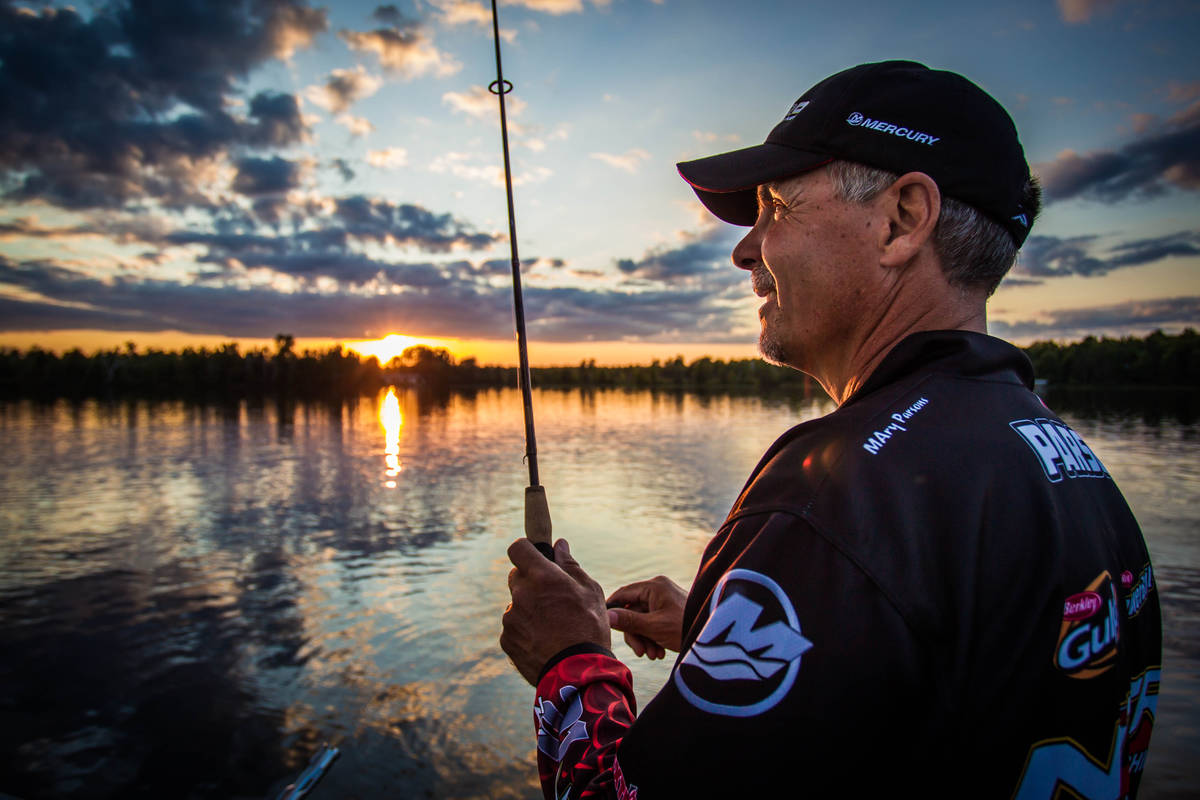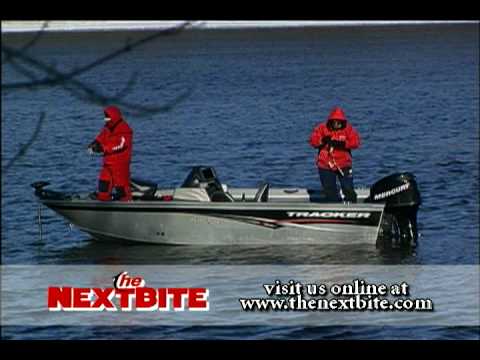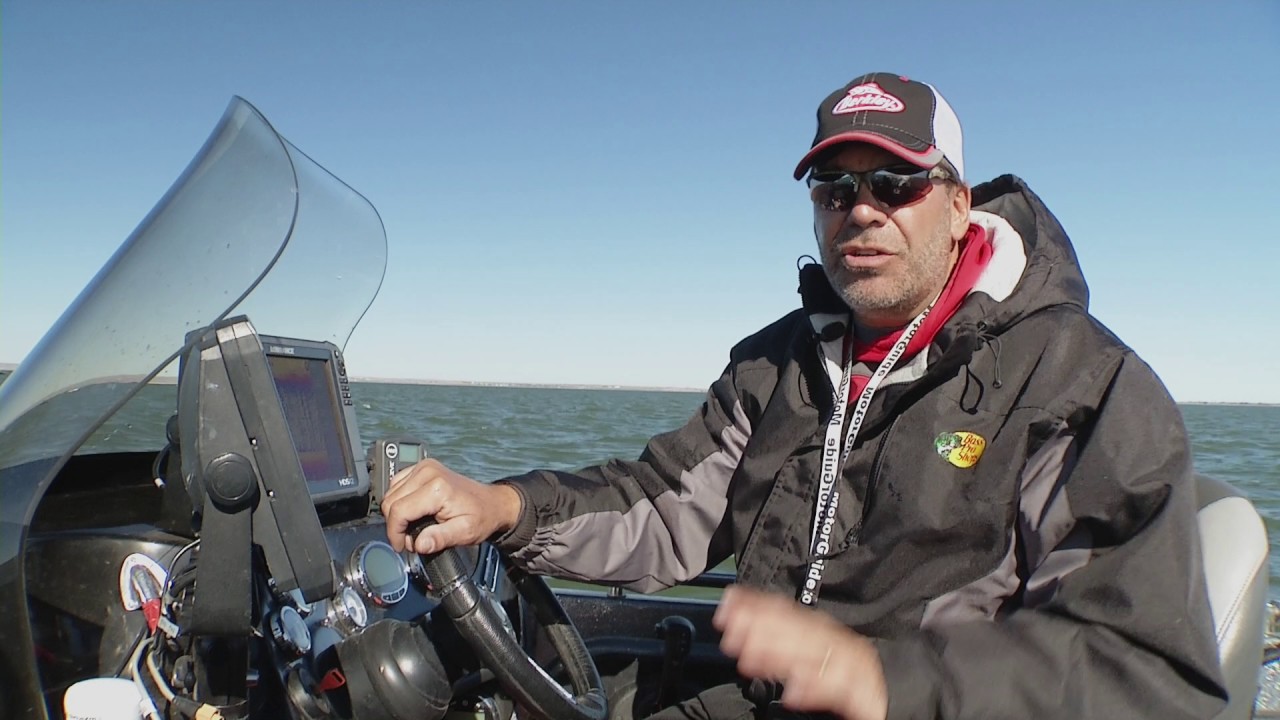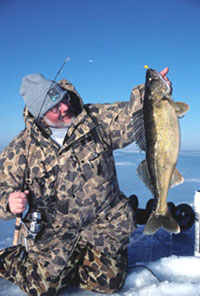 Winter walleye fishing is dominated by jigging methods. There is little doubt that jigging with leadheads, spoons or jigging/swimming style lures is a consistently deadly means of trigger walleye bites on ice. What a lot of walleye anglers don’t realize is that for every fish that bites, there are many others that are attracted, come close enough to take a look and then slip away without biting.
Winter walleye fishing is dominated by jigging methods. There is little doubt that jigging with leadheads, spoons or jigging/swimming style lures is a consistently deadly means of trigger walleye bites on ice. What a lot of walleye anglers don’t realize is that for every fish that bites, there are many others that are attracted, come close enough to take a look and then slip away without biting.
Deadsticking is a great way to catch a few of those walleye that are interested, but not exactly in a red hot mood. The best approach with deadsticking is to combine this subtle presentation with a more aggressive jigging option. Together it’s like having a one-two punch on winter walleye.
Most states allow anglers to fish at least two lines when ice fishing. Using one line to jig aggressively while using a nearby second line as a deadstick is the ideal way to offer winter walleye two presentation options and also to trigger strikes from those fish that just don’t fall for the aggressive approach.
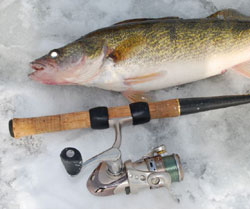 Total Solutions Technique
Total Solutions Technique
Combining both aggressive jigging methods with the more subtle deadsticking approach requires the use of two rod and reel combinations. A couple medium action ice fishing rods, equipped with spinning reels and eight pound test line is a good start. For fishing inside shelters a shorter 18-24 inch rod is required. When fishing in the open air, a slightly longer 30-36 inch rod provides the angler with a little more leverage to fight and land stubborn walleye.
On one of these rods rig up a leadhead jig tipped with a minnow, jigging spoon baited with half a minnow or a jigging/swimming lure without bait. Each of these popular lure groups do an excellent job of tempting walleye into biting. Jigs are the most subtle of these options, with spoons and jigging/swimming lures offering up progressively more aggressive actions.
Depending on the mood of walleye, one of these three lure options will normally catch active fish. It’s the less active fish that don’t readily bite that deadsticking is targeting.
The basic deadsticking rig is simple and easy to use. Tie a No. 12 barrel swivel to the end of the fishing line. Next add about 24 inches of 6 pound test fluorocarbon leader material and to that tie a No. 6 Triple Grip treble hook to the terminal end of your fishing line. Up above the barrel swivel add one or two small split shot to provide just enough weight to sink this rig when baited with a three inch shiner minnow.
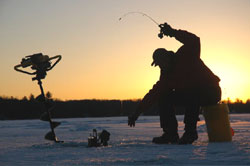 Lower the deadstick rig to bottom and then reel up enough slack so the minnow is positioned about 12 inches off the bottom. Set the rod into a rod holder on the ice or rest it across the top of a five gallon pail with the bail closed on the reel. If you have a baitwalker style reel, these unique spinning reels allow the fish to pull out line at the strike without feeling resistance.
Lower the deadstick rig to bottom and then reel up enough slack so the minnow is positioned about 12 inches off the bottom. Set the rod into a rod holder on the ice or rest it across the top of a five gallon pail with the bail closed on the reel. If you have a baitwalker style reel, these unique spinning reels allow the fish to pull out line at the strike without feeling resistance.
Jig with one rod and watch the deadstick closely. Often a fish will bite the deadstick rig if you see a fish on the sonar, but it doesn’t bite the jigging approach immediately. Sometimes the deadstick rig can be twitched a little to entice bites from fish you can see on the sonar, but that are reluctant to bite.
Deadsticking doesn’t always work, but it works often enough that it should be tried anytime anglers are jigging for winter walleye and having mixed results.
Total Solutions Equipment
Part of the beauty of deadsticking is the simple approach it represents. Almost any ice fishing rod/reel combination can be employed. Ideally the deadstick should have a soft tip and be equipped with a reel loaded with six pound test Berkley Trilene XL or Berkley FirelineCrystal Micro Ice in six or eight pound test.
The best leader material is Berkley Trilene 100% Professional Grade Fluorocarbon in six pound test.
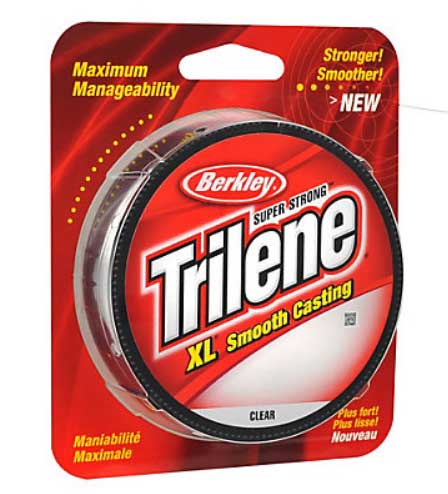
Berkley Trilene XL |
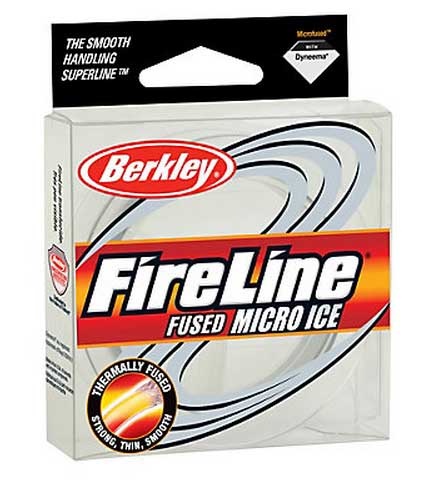 Berkley® FireLine Crystal™ Micro Ice® |
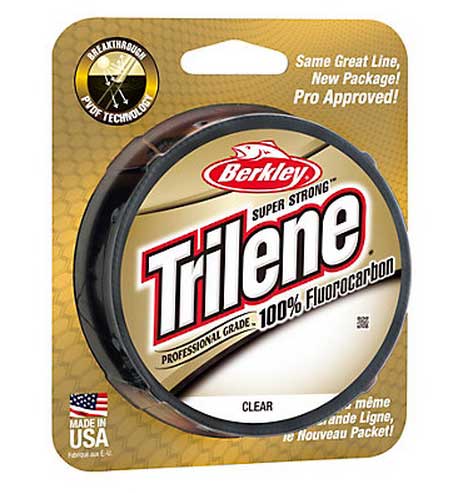 Berkley® Trilene® 100% Fluorocarbon |

